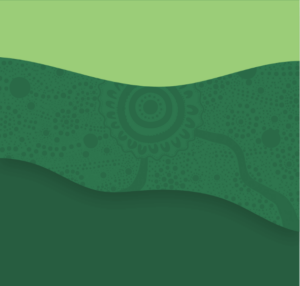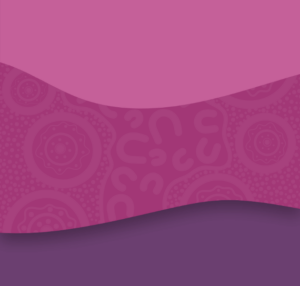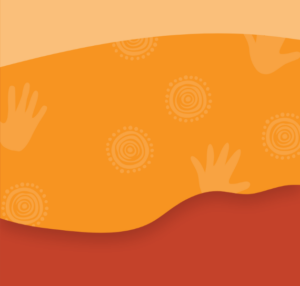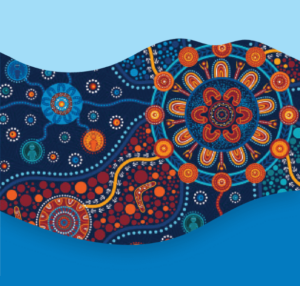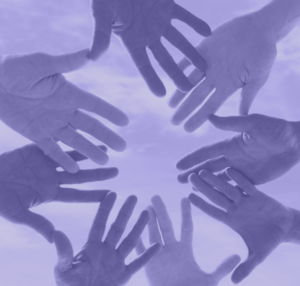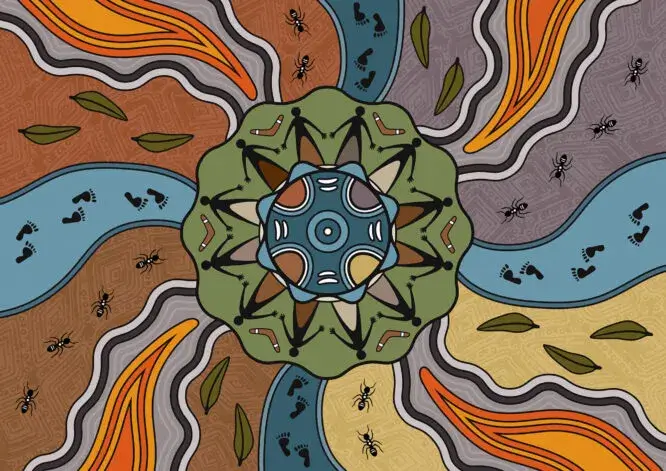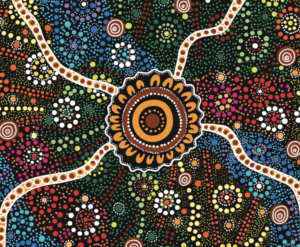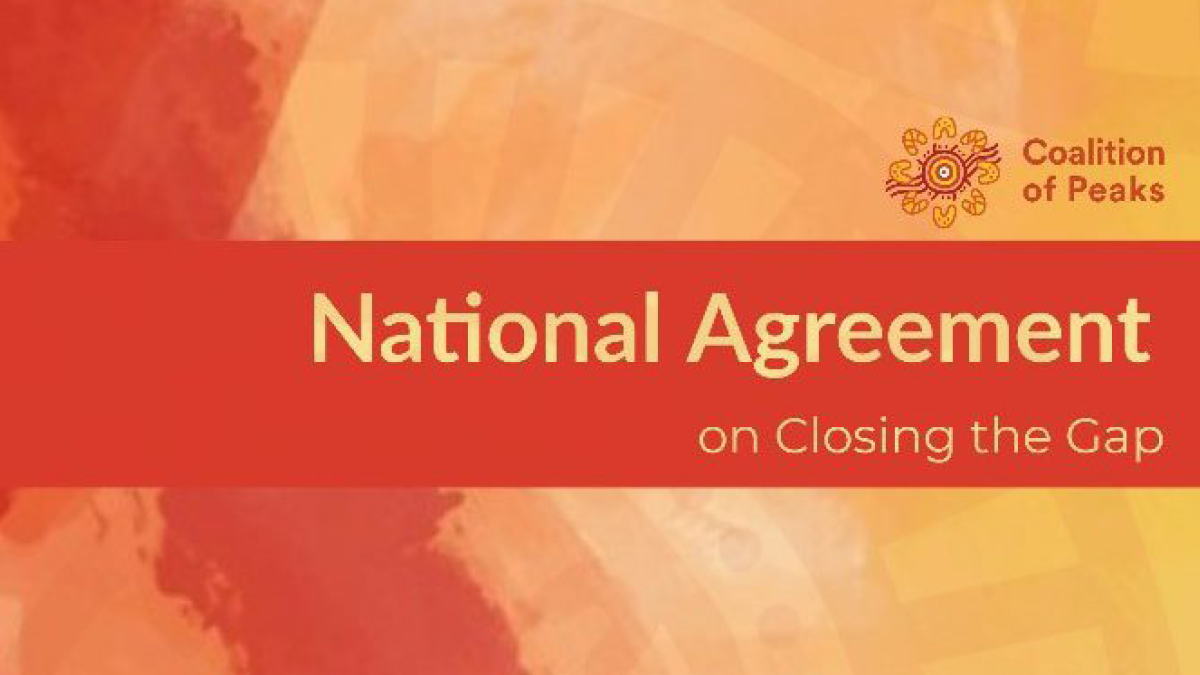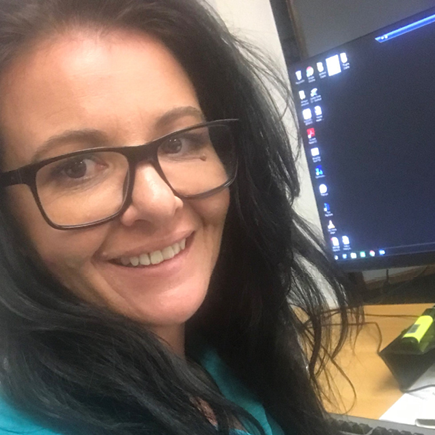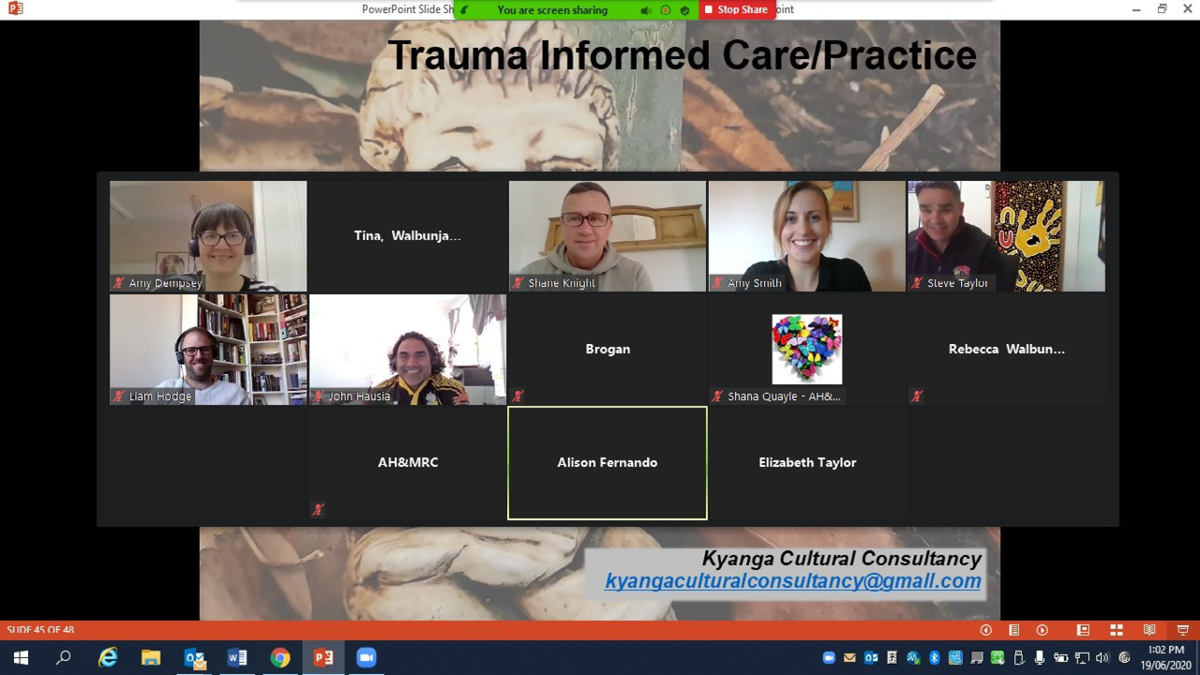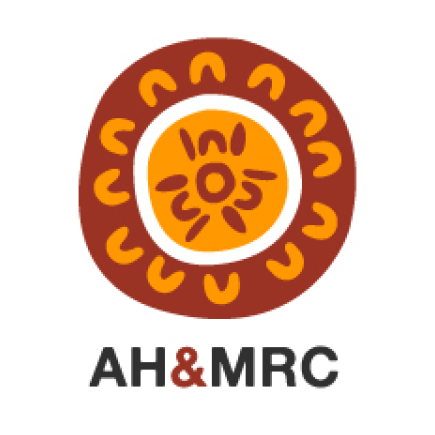AH&MRC welcomes the new National Agreement on Closing the Gap as a historic shift to improve Aboriginal and Torres Strait Islander peoples’ life outcomes.
The National Agreement signals a turning point in the relationship between Aboriginal and Torres Strait Islander people and governments – one that is based on shared decision making on policies and programs that impact Aboriginal and Torres Strait Islander peoples’ lives and futures.
Aboriginal Health & Medical Research Council (AH&MRC) came together with more than fifty other Aboriginal and Torres Strait Islander community controlled peak bodies (Coalition of Peaks) to represent our Member Services and Communities because governments had failed to make substantial progress on Closing the Gap.
The voices of the more than 4000 Aboriginal and Torres Strait Islander people participated in engagements on what should be included in the new National Agreement. The Coalition of Peaks collectively showed that Aboriginal and Torres Strait Islander people had a direct say in what was important to them.
The new National Agreement is a commitment from all governments to change the way they work with Aboriginal and Torres Strait Islander Communities and organisations through four Priority Reforms areas which broadly include:
- Share decision making and new partnerships with Aboriginal and Torres Strait Islander Communities across Australia
- Strengthening the Community Controlled Sector to deliver close the gap services
- Improving mainstream government institutions to address structural racism
- Aboriginal and Torres Strait Islander people have access to and capability to use local data to monitor close the gap efforts and drive their own programs and policies
“Until now the Closing the Gap was just about governments. We needed to have ownership of it and be an equal part of the decision-making process. This is one of the major changes in the new Agreement on Closing the Gap. Australian governments will work in a formal partnership with Aboriginal and Torres Strait Islander representatives through the Coalition of Peaks,” said Robert Skeen, AH&RMC CEO.
“I am pleased to see a focus on strengthening the Aboriginal and Torres Strait Islander Community-Controlled Sector as a priority area. We want to support our sector, create new jobs for Aboriginal and Torres Strait Islander people, and bring opportunities for our healthcare workers to develop their own programs as they continue to provide culturally safe healthcare services, with better health outcomes for our Communities,” said Robert Skeen, AH&MRC CEO
There is a big difference from what governments alone were prepared to commit to in December 2018 and where we are now. The Coalition of Peaks, with the collective support of our Communities and organisations have worked hard to push governments.
The National Agreement does not include everything that the Coalition of Peaks wanted, nor everything that Aboriginal and Torres Strait Islander people have said is needed to improve their lives but Governments were pushed because the Coalition of Peaks have been at the negotiating table.
The National Agreement establishes 16 national socio-economic targets in areas including early childhood, education, employment and health.
“I am disappointed there is no set target that focuses on reducing violence against women and children. We will continue to advocate for governments to do better. I am pleased to see targets on new areas previously excluded in Closing the Gap strategy, including a target to reduce suicides of Aboriginal and Torres Strait Islander people towards zero,” said Robert Skeen.
There is still a long way to go and a lot of work to be done to achieve equality in health and life expectancy for Aboriginal and Torres Strait Islander people. We will continue to work hard to overcome the gaps and ensure our people can have bright and healthy futures.
The National Agreement and the work of the Coalition of Peaks complements the efforts led by First Nations people across the country to improve the life outcomes of our people, including the implementation of the Uluru Statement of the Heart through a constitutionally enshrined Voice to Parliament. This is one part of a much bigger picture for our people. We know there is more to be done, and we will keep pushing.
To read the full new National Agreement on Closing the Gap, please visit the Coalition of Peaks website: https://coalitionofpeaks.org.au/new-national-agreement-on-closing-the-gap/
END
For more information and media enquiries
- AH&MRC: Nadia Ruben on 0418 415 938 or nruben@ahmrc.org.au; and Lucy Butler at lbutler@ahmrc.org.au
- Coalition of Peaks: Jo Scard on 0457 725 953 or jo@fiftyacres.com; and Julia Macerola on 0422 337 332 or julia@fiftyacres.com
About the Coalition of Peaks
The Coalition of Peaks is a representative body of around fifty Aboriginal and Torres Strait Islander community controlled peak organisations and members. The Coalition of Peaks came together on their own as an act of self-determination to be formal partners with Australian governments on Closing the Gap. Members are either national, state or territory wide Aboriginal and Torres Strait Islander community controlled peak bodies including certain independent statutory authorities. Their governing boards are elected by Aboriginal and Torres Strait Islander communities and / or organisations.
For more information on the Coalition of Peaks and to sign up to their mailing list, go to: www.coalitionofpeaks.org.au
